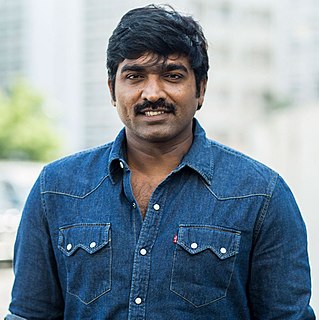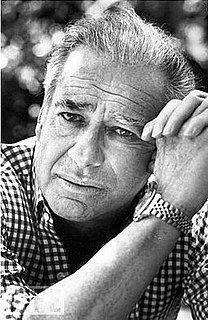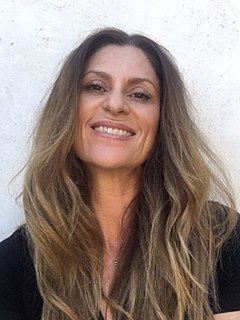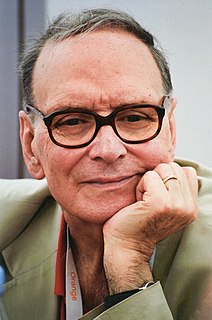A Quote by Vijay Sethupathi
I surrender to my directors. I do that because I respect them immensely. In fact, a director's talent scares me. I admit that they're more intelligent than me, and I submit to that, as an assistant director does. Even when I have suggestions to make, I don't state them strongly.
Related Quotes
I like to adapt to a director's way of working. I love doing that. Each director is so different, and you have to adapt to this new way of doing something. That's what's amazing to me. That's why I love directors. I don't want to director to have to work around me. I think it's more fun for me to come in on their thing.
I certainly would never overstep my bounds and make suggestions to a director. As an actor I'm trying to fit to the best of my abilities within the director's vision, and trying to find some happy rapport where we can both bring something to it that's fresh. Usually I've been lucky in working with directors who have trusted my instincts.
A strong film director does leave you to your devices. A strong director allows you to be free and you trust that he's there and he will tell you if you've gone too far. A strong director allows you to be much more experimental and take greater chances than a director who isn't secure within himself.
A great director, first, is highly intelligent. And he is also a dedicated and willing to work hard. Now those are easy things to identify. The third is the creativity, and that is very difficult to identify in advance. This is why so many of the directors who have started with me were my assistant - the first one was Francis Ford Coppola.
Most directors, I discovered, need to be convinced that the screenplay they're going to direct has something to do with them. And this is a tricky thing if you write screenplays where women have parts that are equal to or greater than the male part. And I thought, 'Why am I out there looking for directors?'—because you look at a list of directors, it's all boys. It certainly was when I started as a screenwriter. So I thought, 'I'm just gonna become a director and that'll make it easier.'
I've had friends who have come away who've said, "I shouldn't have become such close friends with the director." You always want to get on with the director, but I personally prefer a relationship where you respect them - you get on really well with them, but they're boss, as it were. It's about trusting your director, for better or for worse. They're the one's seeing what's coming out on the monitors, so you have to try and trust what they say.
I submit my tongue as an instrument of righteousness when I make it bless them that curse me and pray for them who persecute me, even though it "automatically" tends to strike and wound those who have wounded me. I submit my legs to God as instruments of righteousness when I engage them in physical labor as service, perhaps carrying a burden the "second mile" for someone whom I would rather let my legs kick. I submit my body to righteousness when I do my good deeds without letting them be known, though my whole frame cries out to strut and crow.
To be a great director, what does it mean exactly? It's not only about a great director, but also about being able to rely on the very special chemistry that goes between them. It not only has to be a great director, but the great director has to make his relationship to you, the actor, very special.
In Hong Kong, in our generation that started out in the 1970s, being a director wasn't a big deal. We didn't even have director's chairs. We weren't particularly well paid. The social standing of a film director wasn't that high. It was a sort of a plebeian job, a second or third grade one. And the studio heads are always practical, there's never any fawning because someone is a director. There's very little snobbery about one's position as a director. The only ones people treated differently were those that were also stars; or the directors who also owned their companies.




































